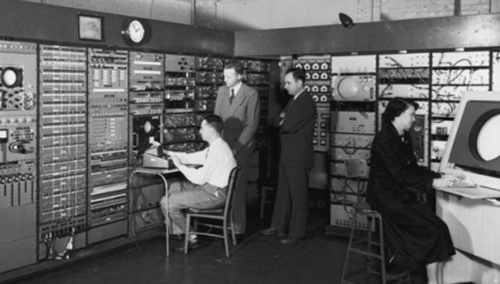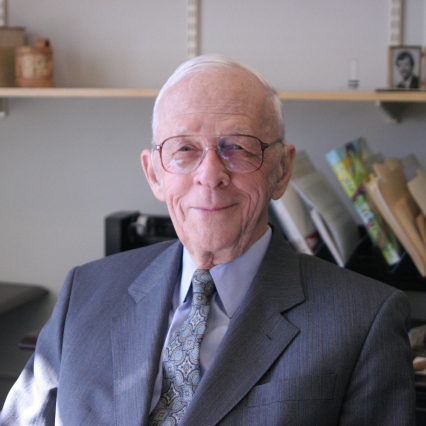Remembering Jay Forrester
-
-
Slice of MIT
- 1
Recommended

A year or two after I finished my PhD, I became director of the MIT Artificial Intelligence Laboratory, succeeding Marvin Minsky and Seymour Papert. Realizing I was young and stupid, I decided to ask various laboratory directors and department chairs what I should do to ensure that the Artificial Intelligence Laboratory would be a great laboratory.
After a dozen or so interviews, I became discouraged. None of the people to whom I talked seemed to have thought about such a question.
Then came the interview with Jay Forrester SM '45. It was about 25 years after he led the MIT group that created the Whirlwind computer, a machine with so many firsts that many consider it the first serious electronic computer. Its success enabled the development of the SAGE air defense system.
When I walked into Forrester's office, it was late afternoon. He sat me down at a small round table, outfitted with a white tablecloth, set for tea and cookies. He was wearing a beautifully tailored suit, with a carefully matching tie. I was not. I was scared.
I announced my purpose and he spent 25 minutes explaining why MIT should not have an Artificial Intelligence Laboratory. I cannot remember his reason.
I sensed that the interview was soon coming to a close, so I blurted out something like, “Well, Professor Forrester, it must have been wonderfully exciting to be trying to build the world's first real computer.”
“Young man,” he said, “We weren't trying to build a computer, we were trying to defend the United States against air attack from the Soviet Union.”
The scales fell from my eyes. You don't build great laboratories; great laboratories form around great missions. Being the best is a weak motive. If you develop a great mission, being the best will take care of itself.
Forrester passed away Wednesday, 16 November 2016. Read the MIT News article on his life.
Patrick Henry Winston ’65, SM ’67, PhD ’70 is the Ford Professor of Engineering and a MacVicar Fellow at MIT.









Comments
Jay Hellman
Wed, 12/14/2016 1:28pm
Thank you, Pat, for writing such an excellent and important note. I was fortunate to have been a student of Prof. Forrester beginning in 1966. I have lived my life since MIT (I left in 1972 with 5 degrees) consistent with the powerful punch line you so elegantly wrote:
If you develop a great mission, being the best will take care of itself.
My life as a private sector businessman (an "over-educated" real estate developer) has treated "profit" as a "constraint" in linear programming optimization parlance; my "objective function" — like your lesson learned from Prof. Forrester — is much more interesting. We were fortunate to have had him as a friend and teacher.